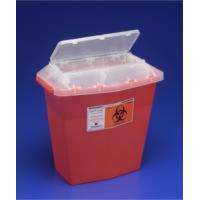
Diabetes and Lung Health. Why People with Diabetes Need to See a PulmonologistDiabetes and Lung Health. Why People with Diabetes Need to See a Pulmonologist
  © Katarzyna Bialasiewicz | Dreamstime.com Diabetes is a chronic condition that damages the body’s major organ systems through increased inflammation and disrupted glycemic control. The lungs are one of the organs affected by diabetes, and seeing a pulmonologist regularly is essential for keeping an eye on the pulmonary function. Most diabetes patients, especially those who live with type 1 diabetes, have a weak immune system. This means that their ability to respond to infections of any type, including lung-related infections, is lower than that of people who don’t have diabetes. Because people living to diabetes are more prone to getting ill than the general population, it’s essential to see a pulmonologist not only when you have symptoms, but also to assess your pulmonary function regularly. Studies have shown that individuals who have been diagnosed with diabetes are at an increased risk of developing multiple pulmonary conditions, including pneumonia asthma, fibrosis and chronic obstructive pulmonary disorder. Regular check-ups are essential for monitoring your pulmonary function. Here are the main reasons to see a pulmonologist regularly if you have diabetes. To check for pneumonia Pneumonia is a dangerous disease that can affect people who live with diabetes because of their weakened immune systems. If you develop symptoms such as fever, breathing difficulties, extreme temperature reactions, rapid heartbeat chest pain and loss of appetite, it’s important to see a pulmonologist. When left untreated, pneumonia can lead to numerous complications that involve accumulation of fluid in the lungs, which may restrict breathing. If you believe you’re suffering from pneumonia, a visit to your pulmonologist is essential. Your doctor will assess you and prescribe either a combination of rest and antibiotics or further tests if the symptoms persist. Sometimes, patients with pneumonia may require hospital treatment and your pulmonologist may recommend it if they believe it’s necessary. To check for tuberculosis Even though tuberculosis is a fairly rare disease in developed countries, the bacteria that cause it can survive for a long time outside the body. This means that you may catch it from public restrooms or on public transport. Symptoms include fever, fatigue, weight loss, coughing, sweating and loss of appetite. Unfortunately, many of these symptoms may not be present until the disease has reached quite an advanced stage, so it’s important to see a pulmonary specialist regularly to rule it out. Tuberculosis is a very serious disease, so your pulmonologist will typically work with a team of doctors to treat you after you’re diagnosed. The treatment for tuberculosis typically involves multiple long courses of antibiotics, which last for approximately six months. To check for COPD (Chronic Obstructive Pulmonary Disorder) Chronic obstructive pulmonary disorder (COPD) is one of the most common lung disorders and people who have diabetes are more susceptible to it. This is mostly true for those who are or have been smokers. Smoking causes inflammation of the lungs and over time this may cause scarring in the walls of the lungs, which results in reducing their ability to breathe. Some of the most common symptoms of COPD include wheezing, breathlessness when exercising, chest infections, phlegmy cough and fatigue. If you experience any of these symptoms, it’s important to see a pulmonologist. While there is no cure for COPD, your doctor may prescribe you medication to relieve the symptoms. A pulmonologist can also offer advice to help you quit smoking if you have trouble doing it on your own. To get advice on preventing lung conditions Even if you don’t have any symptoms, or just mild ones, it’s important to see a pulmonologist regularly if you have diabetes to prevent serious lung conditions. This is particularly important if you smoke. If you have any symptoms that may be related to lung disease, your pulmonologist will run tests to monitor your lung capabilities. Some of the things a pulmonary specialist may want to identify is how much air you can take into your lungs and how much you can blow out. They may also look at the strength of the muscles you use for breathing and how well your lungs can deliver oxygen into your blood stream. Bottom line If you are living with diabetes and experiencing any symptoms associated with a pulmonary disease, you should schedule an appointment with a pulmonologist immediately. Besides, because patients with diabetes are at increased risk for pneumonia, tuberculosis, COPD and asthma, it’s essential to see a pulmonologist regularly to avoid any serious complications. Most lung disorders can be potentially lethal, so monitoring your pulmonary function should be an essential part of managing your diabetes.
| |||||||||||||||||||||||||




























